Related Research Articles
Presbyterianpolity is a method of church governance typified by the rule of assemblies of presbyters, or elders. Each local church is governed by a body of elected elders usually called the session or consistory, though other terms, such as church board, may apply. Groups of local churches are governed by a higher assembly of elders known as the presbytery or classis; presbyteries can be grouped into a synod, and presbyteries and synods nationwide often join together in a general assembly. Responsibility for conduct of church services is reserved to an ordained minister or pastor known as a teaching elder, or a minister of the word and sacrament.

The Reformed Church in America (RCA) is a mainline Reformed Protestant denomination in Canada and the United States. It has about 152,317 members. From its beginning in 1628 until 1819, it was the North American branch of the Dutch Reformed Church.

The Christian Reformed Church in North America is a Protestant Calvinist Christian denomination in the United States and Canada. Having roots in the Dutch Reformed Church of the Netherlands, the Christian Reformed Church was founded by Dutch immigrants in 1857 and is theologically Calvinist.
The Dutch Reformed Church was the largest Christian denomination in the Netherlands from the onset of the Protestant Reformation in the 16th century until 1930. It was the original denomination of the Dutch Royal Family and the foremost Protestant denomination until 2004. It was the larger of the two major Reformed denominations, after the Reformed Churches in the Netherlands was founded in 1892. It spread to the United States, South Africa, Indonesia, Sri Lanka, Brazil, and various other world regions through Dutch colonization. Allegiance to the Dutch Reformed Church was a common feature among Dutch immigrant communities around the world and became a crucial part of Afrikaner nationalism in South Africa.
The United Reformed Churches in North America (URCNA) is a theologically conservative federation of Reformed churches founded in 1996. Many churches joined the URCNA after splitting from the Christian Reformed Church in North America denomination.

The Reformed Church in the United States (RCUS) is a Protestant Christian denomination in the United States. The present RCUS is a conservative, Calvinist denomination. It affirms the principles of the Reformation: Sola scriptura, Solus Christus, Sola gratia, Sola fide, and Soli Deo gloria. The RCUS has membership concentrated in the Midwest and California.
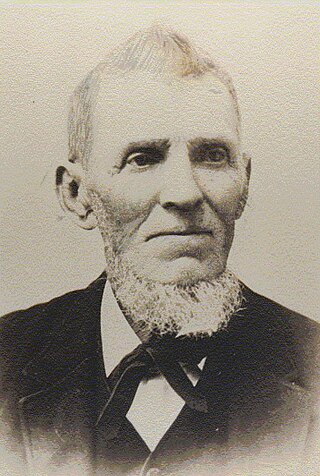
Gijsbert Haan or alternate spelling Gysbert Haan was the leader in the 1857 Secession of Dutch-Americans from the Reformed Church in America, and the creator of the Christian Reformed Church in the United States and Canada.

The Protestant Reformed Churches in America is a Protestant denomination of 33 churches and over 8,000 members.
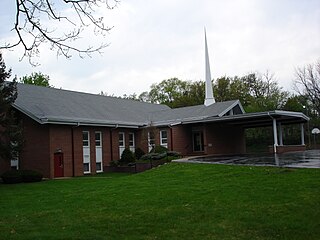
The Netherlands Reformed Congregations is a conservative Calvinist denomination with congregations in Canada, the United States and Bolivia. It is affiliated with the Reformed Congregations in the Netherlands.
The Heritage Reformed Congregations (HRC) constitute a continental Calvinist denomination in the United States and Canada. They were established in 1993 by dissidents from the Netherlands Reformed Congregations under the leadership of Pastor Joel Beeke.

The Reformed Churches in the Netherlands (Liberated) (Dutch: Gereformeerde Kerken in Nederland (vrijgemaakt)) are an orthodox Calvinist federation of churches. This church body arose in 1944 out of the so-called Liberation (Vrijmaking) from the Reformed Churches in the Netherlands, when many pastors and members refused to go along with the General Synod's demand to hold to "presumed regeneration of infants" at their baptism. Klaas Schilder played an important role in the Liberation. There are currently 270 affiliated local congregations with a total of about 120,000 members in 2016.
The Eureka Classis was part of the Reformed Church in the United States (RCUS). It existed from 1910 to 1985. From 1940 until in 1985 the Eureka Classis served as the continuing RCUS as the rest of the denomination had merged into the new denomination, the Evangelical and Reformed Church. On May 6, 1986, the Eureka Classis was called to order and immediately dissolved to form the Synod of the Reformed Church in the United States.
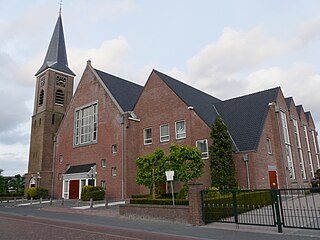
The Restored Reformed Church is a Calvinist denomination in the Netherlands. It was founded in 2004, from congregations which made up the orthodox-reformed wing of the Dutch Reformed Church; they had previously been part of groups named Het Gekrookte Riet and the still existing Gereformeerde Bond within the Dutch Reformed Church. The Church has grown steadily since its founding.

The Reformed Churches in South Africa is a Christian denomination in South Africa that was formed in 1859 in Rustenburg. Members of the church are sometimes referred to as Doppers.
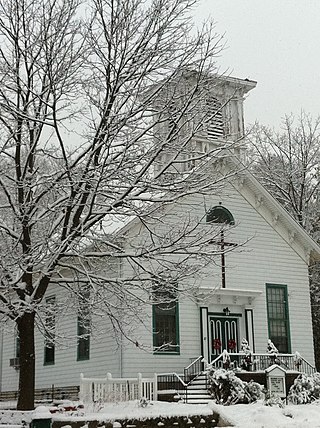
The Monsey Church is the colloquial name of a historic Reformed Christian church in the hamlet of Monsey, town of Ramapo, in southern Rockland County, New York, the official name of which, since December 6, 2000, is New Hope Christian Church. The church was founded in 1824 as the True Reformed Dutch Church of West New Hempstead and later became known as the Monsey Christian Reformed Church. The church owns a historic cemetery adjacent to the site of its first meeting house and briefly operated a private Christian school in the 1950s and '60s. Today the church is a member congregation of the Presbyterian Church in America (PCA). It is the only remaining church that was once part of the True Reformed Dutch Church.

The Reformed Congregations is a conservative Reformed church with 152 congregations in the Netherlands, 1 in Randburg, South Africa and 1 congregation in Carterton, New Zealand. The denomination has approximately 107,299 members as of 1 January 2015. It is Calvinist in theology. It is affiliated with the North American Netherlands Reformed Congregations.
The Nigeria Reformed Church was a mission project of the Reformed Congregations in the Netherlands. The work was started in 1970. In 2000 the denomination had 1,911 members. The church operates in the Izi tribe, comprising about a half million members in the north of Anambra state. The first mission point was opened on 28 August 1977. Over the years missionary congregations created and instituted. In April 1988 the federation was instituted with 17 ministers and 8 deacons served the church. Since then it has become independent. In 2011 the church had 2,500 members in 14 local congregations, 6 mission district in 4 Classis. The church served 9 pastors and 26 evangelists. Currently there are two missionaries working in Nigeria. The Heidelberg Catechism, the Canons of Dort and the Belgic Confession are the official standards.
Gereja Jemaat Protestan di Indonesia is a Reformed church in the Province of Papua in Indonesia. It was created on 25 June 1984 by the Reformed Congregations in the Netherlands. It began pioneer mission work in the Yali territory. Historically this was known as Irian Jaya and was part of the Dutch East Indies. In Papua there are 250 different languages.
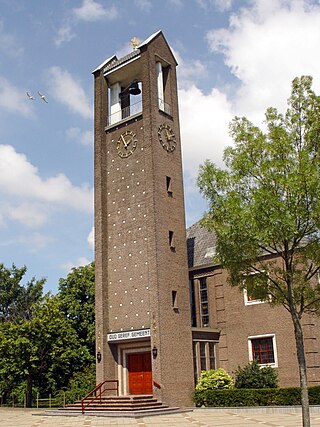
The Old-Reformed Congregations in the Netherlands is a pietistic Reformed denomination in the Netherlands.
The Calvin Synod is an acting conference of the United Church of Christ, composed entirely of Reformed, or Calvinist congregations of Hungarian descent. Unlike much of the UCC, the Synod is strongly conservative on doctrinal and social matters, and many members of the "Faithful and Welcoming Movement," a renewal group acting to move the UCC in a more orthodox direction, belong to this body.
References
- 1 2 3 Gerco Verdouw (October 7, 2016). "History of Reformed Congregations in North America" . Retrieved July 2, 2021.
- 1 2 Betsy Biemond-Boer (2008). Die Hollanders zijn gek!: identiteit en integratie van bevindelijk gereformeerden in Canada. Amsterdam. p. 13. ISBN 978-90-5260-279-0 . Retrieved January 27, 2022.
- ↑ "Ledental Geref. Gemeenten in Ned. in 2012 vrijwel gelijk gebleven". www.refdag.nl.
- 1 2 "Reformed Congregations in North America in Newark Open New Church". 7 May 2015. p. 38. CiteSeerX 10.1.1.667.5016 .
- ↑ Stephan Hoogendijk; Ron Neels (2018). As the Mountains are Round About Jerusalem:1966 - 2016 Fifty Years of God's Faithfulness. The history of the Reformed Congregation in North America in Chilliwack B.C. ISBN 9789089831194 . Retrieved July 2, 2021.
- ↑ "Classis". 4 June 2012.
- ↑ "Ds. A. Geuze (GGiN) bevestigd te Chilliwack".
- ↑ "Afscheid ds. A. Geuze van de RCNA te Chilliwack (Canada)".
- ↑ Emma M. Cochrane (December 8, 2014). "History of Reformed Congregations in North America". University of Ottawa. Retrieved July 2, 2021.
- ↑ "Reformed congregations in America open new church in Giroux". December 10, 2019. Retrieved July 2, 2021.
